News
Interview with Mr Anwarul Huq, General Secretary of South Asian Football Federation (SAFF) regarding the SAFF U17 tournament.
What are SAFF and its objectives?
The SOUTH ASIAN FOOTBALL FEDERATION (SAFF) is an organization working to develop and make football more accessible for everyone within the South Asian region. SAFF was formed in 1997 by founding Member Associations from Bangladesh, India, Maldives, Nepal, Pakistan and Sri Lanka. The SAFF motto ‘Unity in Strength’ depicts the power and bond of these seven Member Associations which is currently epitomized by the leader and President of SAFF, Kazi Md. Salahuddin. The SAFF Secretariat currently operates from Dhaka, Bangladesh. The South Asian Football Federation (SAFF) is the unity of south Asian countries playing football and is a part of the larger Asian Football Confederation (AFC).
SAFF currently manages several competitions for men, women and youth. However, the signature tournament of SAFF is currently known as the “SAFF Championship” and is played by the men’s national football team of each Member Association. The history of the competition dates back to 1993 when it was hosted for the first time in Lahore and titled “South Asian Association of Regional Cooperation Gold Cup”.
Reasons for building South Asian Football Federation?
The SAFF was formed to develop football in the South Asian region and to build healthy relations between the south Asian countries.
What are the plans of SAFF?
Apart from regular competitions that SAFF organizes, the SAFF has been actively involving itself in grooming match officials and other professionals of the sport through capacity-building courses. The SAFF also has plans to organize more grassroots football in the future.
The relationship between SAFF with AFC and FIFA?
SAFF is recognized by the AFC. It is partly funded by AFC.
What are SAFF Championship tournaments? and How many tournaments?
Most of the time SAFF organize 5 major tournaments in the male and female both
Reasons to host these kinds of tournaments?
To develop football in the region and prepare our teams for the AFC competitions.
How does Sri Lanka get an opportunity to host the SAFF U17 Championship? Through a bidding process? Who else bid along with Sri Lanka? How does Sri Lanka win the bid? (if it is a bid process)
The age group tournaments are usually hosted upon interest by the member associations of the SAFF. Sri Lanka expressed their interest to host the tournament which was approved by the Executive Committee of the SAFF. In this time of crisis, the tournament could also be a factor to unite and spread happiness among the people.
Will Sri Lanka get a subsidy to host this tournament? because everyone knows that Sri Lanka is in an economic crisis. If yes, can please indicate the subsidy details?
Yes, Sri Lanka will get a subsidy to host the tournament depending upon the budget they have sent.
Will SAFF help Sri Lanka/ Host nation to find International Sponsorship?
SAFF gives the marketing rights to the host in age group tournaments. Yes, of course, SAFF is there to extend a helping hand if the need arises.
Is this tournament will have an impact on the U17 FIFA Ranking?
This tournament is a preparatory tournament for our teams for the AFC U17 qualifiers. The AFC U17 qualifiers will have an impact on the FIFA ranking.
At last what kind of a tournament SAFF is expecting from the host nation, Sri Lanka?
We are expecting a very good tournament in Sri Lanka as all teams are competitive. We also believe that football has the power to unite and spread happiness among the people. We are sure that this tournament will do the same. It is also a sign that Sri Lanka is slowly back on track.
SAFF U17 තරඟාවලිය සම්බන්ධයෙන් දකුණු ආසියානු පාපන්දු සම්මේලනයේ (SAFF) ප්රධාන ලේකම් Anwarul Huq මහතා සමඟ පැවැත්වූ සම්මුඛ සාකච්ඡාව
දකුණු ආසියානු පාපන්දු සම්මේලනය (SAFF) යනු දකුණු ආසියානු කලාපය තුළ සිටින සෑම කෙනෙකුටම පාපන්දු ක්රීඩාව දියුණු කිරීමට සහ ක්රීඩාවට ප්රවේශ විය හැකි බවට පත් කිරීමට ක්රියා කරන සංවිධානයකි. බංග්ලාදේශය, ඉන්දියාව, මාලදිවයින, නේපාලය, පකිස්ථානය සහ ශ්රී ලංකාව යන රටවලින් සාමාජික සංගම් පිහිටුවීමෙන් SAFF 1997 දී පිහිටුවන ලදී. SAFF ආදර්ශ පාඨය ‘ශක්තියෙන් එකමුතුකම’ මෙම සාමාජික සංගම් හතේ බලය සහ බැඳීම නිරූපණය කරනු ලබයි. වර්ථමාන SAFF හි නායකයා සහ සභාපති, Kazi Md. Salahuddin. SAFF ලේකම් කාර්යාලය දැනට පිහිටා ඇත්තේ බංග්ලාදේශයේ ඩකා නගරයේය. දකුණු ආසියානු පාපන්දු සම්මේලනය (SAFF) යනු පාපන්දු ක්රීඩා කරන දකුණු ආසියාතික රටවල එකමුතුව වන අතර එය ආසියානු පාපන්දු සම්මේලනයේ (AFC) කොටසකි.
කෙසේ වෙතත්, SAFF හි Signature Tournament දැනට “SAFF ශූරතාව” ලෙස හඳුන්වනු ලබන අතර එය එක් එක් සාමාජික සංගමයේ පිරිමි ජාතික පාපන්දු කණ්ඩායම නියෝජනය කරනු ලබයි. තරඟයේ ඉතිහාසය ආරම්භ වන්නේ 1993 දී එය ලාහෝර් හි පළමු වරට සත්කාරකත්වය දැරූ අතර එය “දකුණු ආසියානු කලාපීය සහයෝගීතා රන් කුසලානය” ලෙස නම් කර ඇත.
දකුණු ආසියානු පාපන්දු සම්මේලනය ගොඩනැගීමට හේතු?
දකුණු ආසියානු කලාපයේ පාපන්දු ක්රීඩාව දියුණු කිරීමට සහ දකුණු ආසියානු රටවල් අතර යහපත් සබඳතා ගොඩනඟා ගැනීමට SAFF පිහිටුවා ඇත.
SAFF හි අනාගත සැලසුම් මොනවාද?
SAFF සංවිධානය කරන විධිමත් තරඟ වලට අමතරව, SAFF තරඟ නිළධාරීන් සහ ක්රීඩාවේ අනෙකුත් වෘත්තිකයන්ගේ කුසලතා වර්ධන පාඨමාලා හරහා ක්රියාකාරීව සම්බන්ධ වීමට අවස්ථාව ලබ දී ඇත. ඉදිරියේදී තවත් පහළ මට්ටමේ පාපන්දු තරගාවලි සංවිධානය කිරීමට ද SAFF සැලසුම් කර ඇත.
AFC සහ FIFA සමඟ SAFF අතර සම්බන්ධය කුමක්ද (SAFF සංවිධානය FIFA සහ AFC හි සාමාජිකයෙක්ද? සහ AFC විසින් SAFF හට අරමුදල් සපයන්නේද?)
SAFF සංවිධානය AFC විසින් පිළිගනු ලැබේ. එයට අර්ධ වශයෙන් අරමුදල් සපයනු ලබන්නේ AFC විසිනි.
SAFF ශූරතා තරඟාවලි මොනවාද? තරඟාවලි කීයක් ද?
බොහෝ විට තරගාවලි 5ක්පි රිමි ගැහැණු දෙකම නියෝජනය වේ
මෙවැනි තරඟාවලි පැවැත්වීමට හේතු?
කලාපයේ පාපන්දු සංවර්ධනය කිරීම සහ AFC තරඟ සඳහා අපගේ කණ්ඩායම් සූදානම් කිරීම.
SAFF U17 ශූරතාවලියේ සත්කාරකත්වය සඳහා ශ්රී ලංකාවට අවස්ථාවක් ලැබෙන්නේ කෙසේද? ලංසු තැබීමේ ක්රියාවලියක් හරහාද? ශ්රී ලංකාව සමඟ තවත් කවුද ලංසු තබන්නේ? ශ්රී ලංකාව ලංසුව දිනන්නේ කෙසේද? (එය ලංසු ක්රියාවලියක් නම්)
වයස් කාණ්ඩ තරඟාවලි සාමාන්යයෙන් SAFF හි සාමාජික සංගම් විසින් උනන්දුවක් දක්වනු ලැබේ. SAFF හි විධායක කමිටුව විසින් අනුමත කරන ලද මෙම තරඟාවලිය සඳහා සත්කාරකත්වය ලබා දීමට ශ්රී ලංකාව කැමැත්ත පළ කළේය. මේ අර්බුදකාරී අවස්ථාවේ ජනතාව අතරේ එකමුතු වී සතුට බෙදා හැරීමට ද තරගාවලිය සාධකයක් විය හැකිය.
මෙම තරඟාවලිය පැවැත්වීම සඳහා ශ්රී ලංකාවට සහනාධාරයක් ලැබේවිද? මොකද ලංකාව ආර්ථික අර්බුදයක බව කවුරුත් දන්නවා. ඔව් නම්, කරුණාකර සහනාධාර විස්තර සඳහන් කළ හැකිද?
ඔව්, ඔවුන් යවා ඇති අයවැය අනුව තරඟාවලිය පැවැත්වීම සඳහා ශ්රී ලංකාවට සහනාධාරයක් ලැබෙනු ඇත.
ජාත්යන්තර අනුග්රාහකත්වය සොයා ගැනීමට SAFF ශ්රී ලංකාවට/ සත්කාරක ජාතියට උදවු කරයිද?
SAFF විසින් වයස් කාණ්ඩ තරඟාවලි වලදී සත්කාරක සමාගමට අලෙවිකරණ අයිතිය ලබා දෙයි. ඔව්, ඇත්ත වශයෙන්ම, අවශ්යතාවය පැනනගින විට උපකාර හස්තයක් දිගු කිරීමට SAFF සිටී.
මෙම තරඟාවලිය U17 FIFA ශ්රේණිගත කිරීම කෙරෙහි බලපෑමක් ඇති කරයිද?
මෙම තරඟාවලිය AFC U17 සුදුසුකම් ලැබීමේ තරඟ සඳහා අපගේ කණ්ඩායම් වලට පෙර සූදානම් වීමේ තරඟාවලියකි. AFC U17 සුදුසුකම් ලැබීමේ තරඟ FIFA ශ්රේණිගත කිරීම කෙරෙහි බලපානු ඇත.
අවසාන වශයෙන් SAFF සත්කාරක රට වන ශ්රී ලංකාවෙන් බලාපොරොත්තු වන්නේ කුමන ආකාරයේ තරඟාවලියක්ද?
සියලුම කණ්ඩායම් තරගකාරී බැවින් ශ්රී ලංකාවේදී අපි ඉතා හොඳ තරගාවලියක් බලාපොරොත්තු වෙනවා. ඒ වගේම අපි විශ්වාස කරනවා පාපන්දු ක්රීඩාවට මිනිසුන් අතර සතුට බෙදාහැරීමේ හැකියාවක් තියෙනවා කියලා. මේ තරගාවලිය තුළිනුත් ඒ දේම කරන බව අපට විශ්වාසයි. එය ශ්රී ලංකාව කෙමෙන් කෙමෙන් යථා තත්ත්වයට පත්වන බවට පෙරනිමිත්තක් වේ.
SAFF U17 போட்டிகள் தொடர்பாக தெற்காசிய கால்பந்து சம்மேளனத்தின் (SAFF) பொதுச் செயலாளர் திரு. அன்வருல் ஹக் அவர்களுடன் நேர்காணல்
SAFF மற்றும் அதன் நோக்கங்கள் என்ன?
தெற்காசிய கால்பந்து கூட்டமைப்பு (SAFF) என்பது தெற்காசியப் பிராந்தியத்தில் உள்ள அனைவருக்கும் கால்பந்தை மேலும் அணுகக்கூடியதாக மாற்றும் வகையில் செயல்படும் ஒரு அமைப்பாகும். 1997 இல் வங்கதேசம், இந்தியா, மாலத்தீவு, நேபாளம், பாகிஸ்தான் மற்றும் இலங்கை ஆகிய நாடுகளில் இருந்து உறுப்பினர் சங்கங்களை நிறுவியதன் மூலம் SAFF உருவாக்கப்பட்டது. SAFF முழக்கம் ‘பலத்தில் ஒற்றுமை’ இந்த ஏழு உறுப்பினர் சங்கங்களின் சக்தி மற்றும் பிணைப்பை சித்தரிக்கிறது, இது தற்போது SAFF இன் தலைவரும் தலைவருமான காசி Md. சலாஹுதீனால் உருவகப்படுத்தப்பட்டுள்ளது. SAFF செயலகம் தற்போது பங்களாதேஷின் டாக்காவில் இருந்து செயல்படுகிறது. தெற்காசிய கால்பந்து கூட்டமைப்பு (SAFF) கால்பந்து விளையாடும் தெற்காசிய நாடுகளின் ஒற்றுமை மற்றும் பெரிய ஆசிய கால்பந்து கூட்டமைப்பின் (AFC) ஒரு பகுதியாகும்.
SAFF தற்போது ஆண்கள், பெண்கள் மற்றும் இளைஞர்களுக்கான பல போட்டிகளை நிர்வகிக்கிறது. இருப்பினும், SAFF இன் சிக்னேச்சர் போட்டியானது தற்போது “SAFF சாம்பியன்ஷிப்” என்று அழைக்கப்படுகிறது, மேலும் ஒவ்வொரு உறுப்பினர் சங்கத்தின் ஆண்கள் தேசிய கால்பந்து அணியால் விளையாடப்படுகிறது. போட்டியின் வரலாறு 1993 ஆம் ஆண்டு முதல் லாகூரில் “தெற்காசிய கூட்டமைப்பு பிராந்திய ஒத்துழைப்பு தங்கக் கோப்பை” என்ற தலைப்பில் நடத்தப்பட்டது.
தெற்காசிய கால்பந்து கூட்டமைப்பை உருவாக்குவதற்கான காரணங்கள்? தெற்காசிய பிராந்தியத்தில் கால்பந்தாட்டத்தை வளர்க்கவும், தெற்காசிய நாடுகளுக்கு இடையே ஆரோக்கியமான உறவுகளை உருவாக்கவும் SAFF உருவாக்கப்பட்டது.
SAFF இன் திட்டங்கள் என்ன?
SAFF ஒழுங்கமைக்கும் வழக்கமான போட்டிகளைத் தவிர, SAFF ஆனது திறன்-வளர்ப்பு படிப்புகள் மூலம் போட்டி அதிகாரிகள் மற்றும் விளையாட்டின் பிற நிபுணர்களை சீர்படுத்துவதில் தீவிரமாக ஈடுபட்டுள்ளது. SAFF ஆனது எதிர்காலத்தில் மேலும் அடிமட்ட கால்பந்தை ஏற்பாடு செய்வதற்கான திட்டங்களையும் கொண்டுள்ளது.
AFC மற்றும் FIFA உடன் SAFF க்கு இடையிலான உறவு?
SAFF ஆனது AFC ஆல் அங்கீகரிக்கப்பட்டது. இது ஓரளவு AFC ஆல் நிதியளிக்கப்படுகிறது
SAFF சாம்பியன்ஷிப் போட்டிகள் என்றால் என்ன? மற்றும் எத்தனை போட்டிகள்?
பெரும்பாலான நேரங்களில் SAFF ஆண் மற்றும் பெண் இருபாலருக்கும் 5 முக்கிய போட்டிகளை ஏற்பாடு செய்கிறது
இந்த வகையான போட்டிகளை நடத்துவதற்கான காரணங்கள்?
பிராந்தியத்தில் கால்பந்தை மேம்படுத்தவும், AFC போட்டிகளுக்கு எங்கள் அணிகளை தயார் செய்யவும்.
.SAFF U17 சாம்பியன்ஷிப்பை நடத்துவதற்கான வாய்ப்பை இலங்கை எவ்வாறு பெறுகிறது? ஏல முறை மூலம்? இலங்கையுடன் சேர்ந்து வேறு யார் ஏலம் எடுத்தார்கள்? ஏலத்தில் இலங்கை எப்படி வெற்றி பெறுகிறது? (இது ஒரு ஏல செயல்முறையாக இருந்தால்)
வயது குழு போட்டிகள் பொதுவாக SAFF இன் உறுப்பினர் சங்கங்களால் ஆர்வத்தின் பேரில் நடத்தப்படுகின்றன. SAFF இன் செயற்குழுவால் அங்கீகரிக்கப்பட்ட போட்டியை நடத்துவதற்கு இலங்கை விருப்பம் தெரிவித்தது. இந்த நெருக்கடியான நேரத்தில், மக்கள் மத்தியில் மகிழ்ச்சியைப் பரப்புவதற்கும், ஒன்றிணைவதற்கும் இந்தப் போட்டி ஒரு காரணியாக இருக்கும்.
இந்தப் போட்டியை நடத்த இலங்கைக்கு மானியம் கிடைக்குமா? ஏனெனில் இலங்கை பொருளாதார நெருக்கடியில் உள்ளது என்பது அனைவருக்கும் தெரியும். ஆம் எனில், மானிய விவரங்களைக் குறிப்பிட முடியுமா?
ஆம், அவர்கள் அனுப்பிய பட்ஜெட்டைப் பொறுத்து போட்டியை நடத்த இலங்கை மானியம் பெறும்.
சர்வதேச அனுசரணையைக் கண்டறிய SAFF இலங்கை/ ஹோஸ்ட் நாட்டிற்கு உதவுமா?
SAFF வயதுப் பிரிவு போட்டிகளில் நடத்துபவருக்கு சந்தைப்படுத்தல் உரிமைகளை வழங்குகிறது. ஆம், நிச்சயமாக, தேவை ஏற்பட்டால் உதவிக்கரம் நீட்ட SAFF உள்ளது.
இந்த போட்டி U17 FIFA தரவரிசையில் தாக்கத்தை ஏற்படுத்துமா?
இந்தப் போட்டி AFC U17 தகுதிச் சுற்றுக்கான எங்கள் அணிகளுக்கான ஆயத்தப் போட்டியாகும். AFC U17 தகுதிச் சுற்றுகள் FIFA தரவரிசையில் தாக்கத்தை ஏற்படுத்தும்.
கடைசியாக SAFF எந்த மாதிரியான போட்டியை நடத்தும் நாடான இலங்கையிடம் இருந்து எதிர்பார்க்கிறது?
அனைத்து அணிகளும் போட்டித்தன்மையுடன் இருப்பதால் இலங்கையில் ஒரு சிறந்த போட்டியை எதிர்பார்க்கிறோம். மக்கள் மத்தியில் மகிழ்ச்சியை ஒருங்கிணைத்து பரப்பும் சக்தி கால்பந்துக்கு உண்டு என்றும் நாங்கள் நம்புகிறோம். இந்தப் போட்டியும் அவ்வாறே செய்யும் என்பதில் உறுதியாக உள்ளோம். இலங்கை மெல்ல மெல்ல திரும்பி வருவதற்கான அறிகுறியும் கூட.
Cricket
Sri Lanka Stunned by Zimbabwe Despite 178 as Bowling Falters in Colombo
Sri Lanka’s T20 World Cup campaign suffered a major setback as they went down to Zimbabwe by six wickets at the R. Premadasa Stadium — a result few predicted before the first ball was bowled.
After winning the toss and opting to bat, Sri Lanka posted what appeared to be a competitive 178/7. But defensive bowling and a lack of control in key moments allowed Zimbabwe to chase down 179 with three balls to spare, finishing on 182/4 in 19.3 overs.
Where Sri Lanka Lost the Game
Strong Start, Poor Finish with the Bat
Sri Lanka flew out of the blocks, scoring 61 runs in the Powerplay.
- Pathum Nissanka led the charge with a fluent 62 off 41 balls.
- The opening stand raced to 54 inside five overs.
However, momentum dipped sharply in the middle overs:
- Kusal Mendis struggled (14 off 20).
- The run rate slowed between overs 7–14.
- Despite a late push from Pavan Rathnayake (44 off 25), Sri Lanka managed only 28 runs in the final three overs.
From a position of dominance at 108/2, they could not push beyond the 185–190 mark — a total that, in hindsight, proved costly.
Failure to Strike Early with the Ball
Zimbabwe’s chase was built on a solid foundation:
- 55 runs in the Powerplay without losing a wicket.
- 69-run opening stand removed early pressure.
Sri Lanka never truly regained control.
The Raza–Bennett Counterattack
The turning point came when captain Sikandar Raza launched a brutal counterattack:
- 45 off 26 balls
- 4 sixes
- 50-run partnership in just 27 balls
Brian Bennett anchored the chase superbly with an unbeaten 63 off 48.
Raza’s assault in overs 15–18 shifted the momentum completely, taking the game away from Sri Lanka just when it seemed evenly poised.
Bowling Concerns Under Lights
Sri Lanka’s bowling lacked penetration:
- Maheesh Theekshana conceded 47 in 3.3 overs (13.42 economy).
- No early breakthroughs from the seamers.
- Only one Powerplay wicket across both innings combined.
On a Colombo surface that slowed slightly, Zimbabwe adapted better, rotating strike efficiently before accelerating at the death.
Key Numbers That Hurt Sri Lanka
- Zimbabwe Powerplay: 55/0
- Sri Lanka Powerplay wickets: 0
- Zimbabwe scored 150 in just 16.1 overs
- Sri Lanka conceded 9.33 runs per over in the chase
What This Means
Sri Lanka entered as favourites, especially batting first at home. But tactical lapses, middle-over stagnation, and expensive spells under pressure proved decisive.
Zimbabwe, disciplined with the ball and fearless in the chase, fully deserved their two points.
For Sri Lanka, questions now emerge:
- Is the bowling attack lacking bite?
- Are middle overs becoming a recurring concern?
- Was 178 ever going to be enough on this surface?
With tougher fixtures ahead in the T20 World Cup, Sri Lanka must regroup quickly — because performances like this could derail their campaign early.
Cricket
Sri Lanka Sweats on Pathirana Injury; Hasaranga Comeback on the Cards
Sri Lanka’s ICC Men’s T20 World Cup 2026 campaign has suffered a major setback, with fast bowler Matheesha Pathirana likely to miss the remainder of the tournament due to injury.
The 23-year-old sustained a calf injury during Sri Lanka’s Group B encounter against Australia on Monday at the Pallekele International Cricket Stadium. The incident occurred in his opening over when, after delivering the fourth ball, Pathirana suddenly pulled up clutching his left calf before collapsing to the ground in visible discomfort.
Team physiotherapists rushed onto the field as concerned teammates gathered around. The pacer was unable to leave the field without assistance, immediately raising concerns about the severity of the injury. Captain Dasun Shanaka completed the over in his absence.
Shortly after, Sri Lanka Cricket (SLC) confirmed that Pathirana would take no further part in the match. In a brief statement, SLC said the bowler had experienced discomfort in his left calf and would undergo medical scans for a full assessment.
Major Blow to Pace Attack
Initial indications suggest the injury could rule Pathirana out for the rest of the World Cup — a significant loss for Sri Lanka’s bowling unit. Known for his slingy action and deadly yorkers, especially at the death, Pathirana has been one of Sri Lanka’s most reliable T20 strike bowlers.
If ruled out, team management is expected to consider Dilshan Madushanka or Nuwan Thushara as potential replacements. While both offer pace and variety, replacing Pathirana’s unique skillset will be a challenge.
Hasaranga Return Under Discussion
In a parallel development, Sri Lanka are reportedly exploring the possibility of bringing Wanindu Hasaranga back into the squad as he continues recovery from a hamstring injury.
Although Hasaranga has not yet regained full match fitness, officials are said to be evaluating whether he could feature later in the tournament — particularly if Sri Lanka qualify for the Super Eight stage.
With their final group match effectively a dead rubber, Sri Lanka have a short window to reassess their injury situation and make strategic decisions. The team management is likely to wait for clearer medical reports before confirming any squad changes.
As the tournament enters a decisive phase, Sri Lanka’s hopes may depend as much on fitness updates as on performances on the field.
Cricket
Colombo Set for High-Voltage India–Pakistan Night Battle
ICC Men’s T20 Cricket World Cup
Colombo is preparing for one of cricket’s biggest nights as India and Pakistan meet in a marquee clash of the ICC Men’s T20 Cricket World Cup at the R. Premadasa Stadium on Sunday.
Beyond tactics and statistics, this is a contest built on history and pride. With both teams in form and World Cup ambitions on the line, Sunday night promises a high-quality contest under the Colombo lights.
-
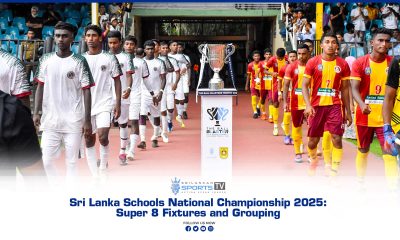
 Football1 year ago
Football1 year agoSri Lanka Schools National Championship 2025: Super 8 Fixtures and Grouping
-

 News1 year ago
News1 year ago2025 Schools Rugby Season Set to Thrill Fans with Knockout and League Action
-

 Cricket9 months ago
Cricket9 months agoNuwan Thushara Shines as RCB Storms into IPL 2025 Final
-

 Live4 years ago
Live4 years agoLive Broadcast of Syria vs Sri Lanka | AFC U23 Asian Championship Qualification
-
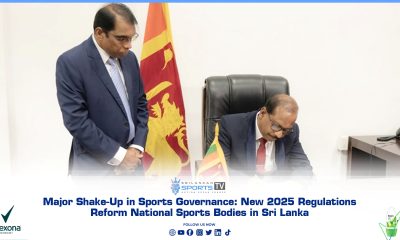
 News9 months ago
News9 months agoMajor Shake-Up in Sports Governance: New 2025 Regulations Reform National Sports Bodies in Sri Lanka
-
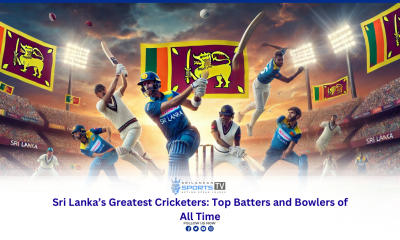
 Cricket1 year ago
Cricket1 year agoSri Lanka’s Greatest Cricketers: Top Batters and Bowlers of All Time
-
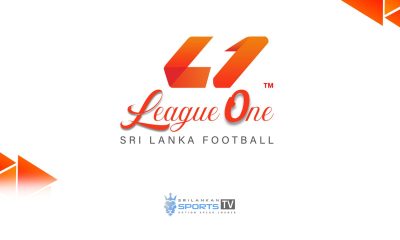
 Football1 year ago
Football1 year agoFFSL Rebrands Division-1 as ‘League-One’ with a Bold New Vision
-
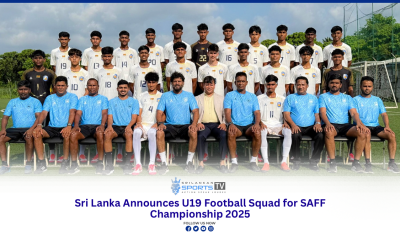
 Football10 months ago
Football10 months agoSri Lanka Announces U19 Football Squad for SAFF Championship 2025







